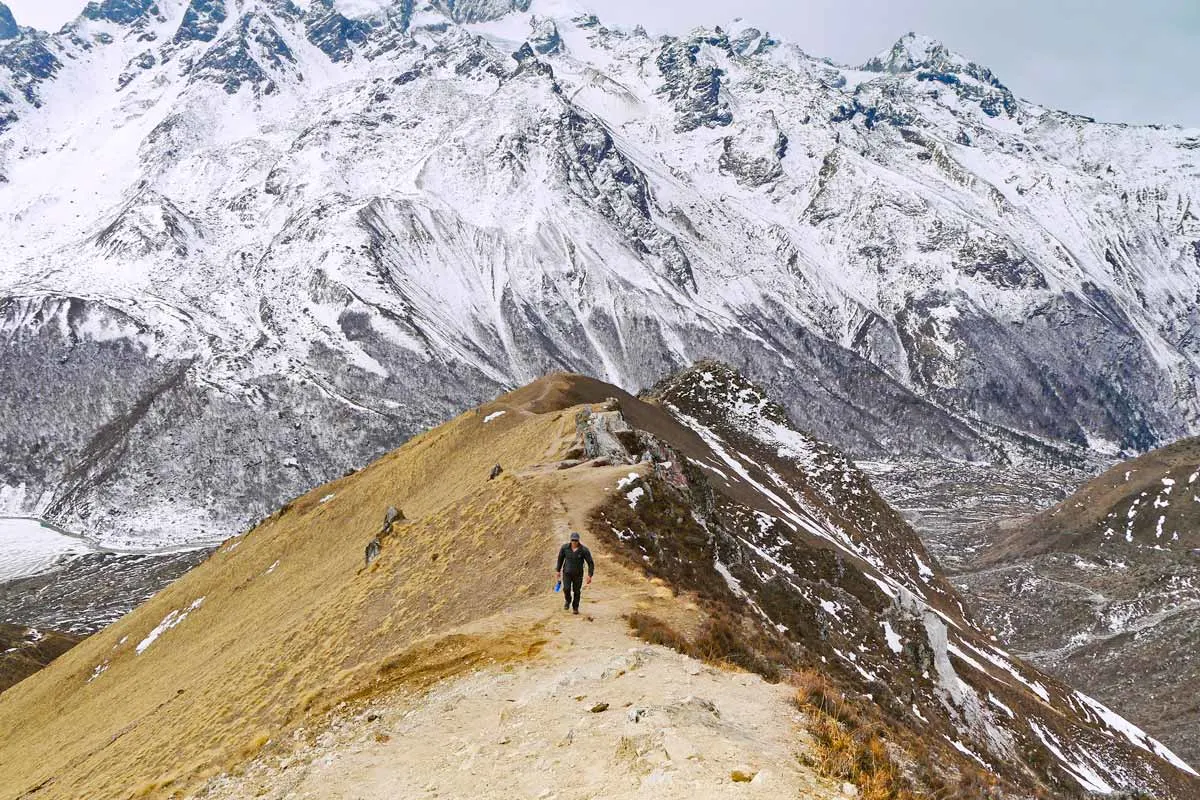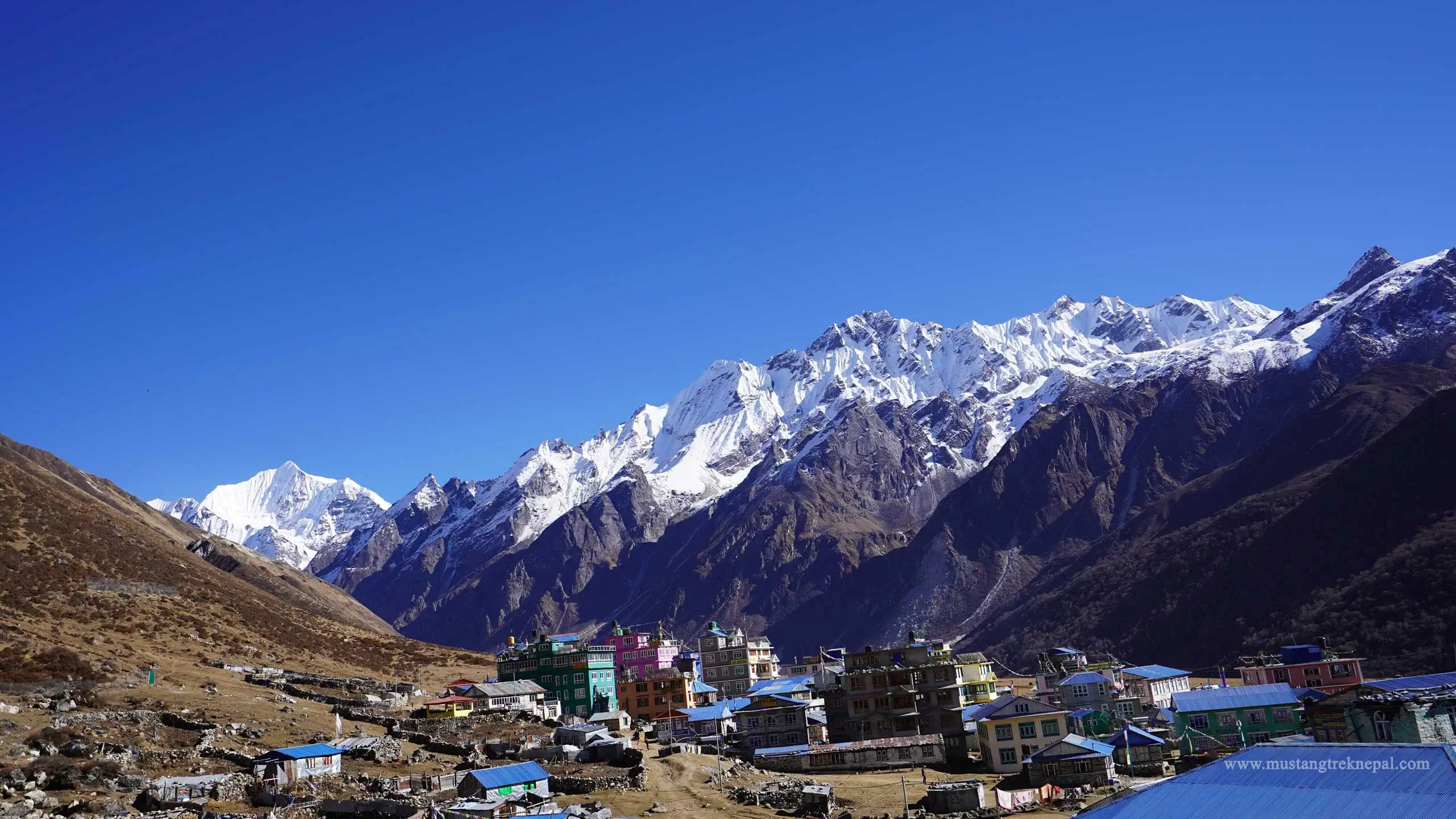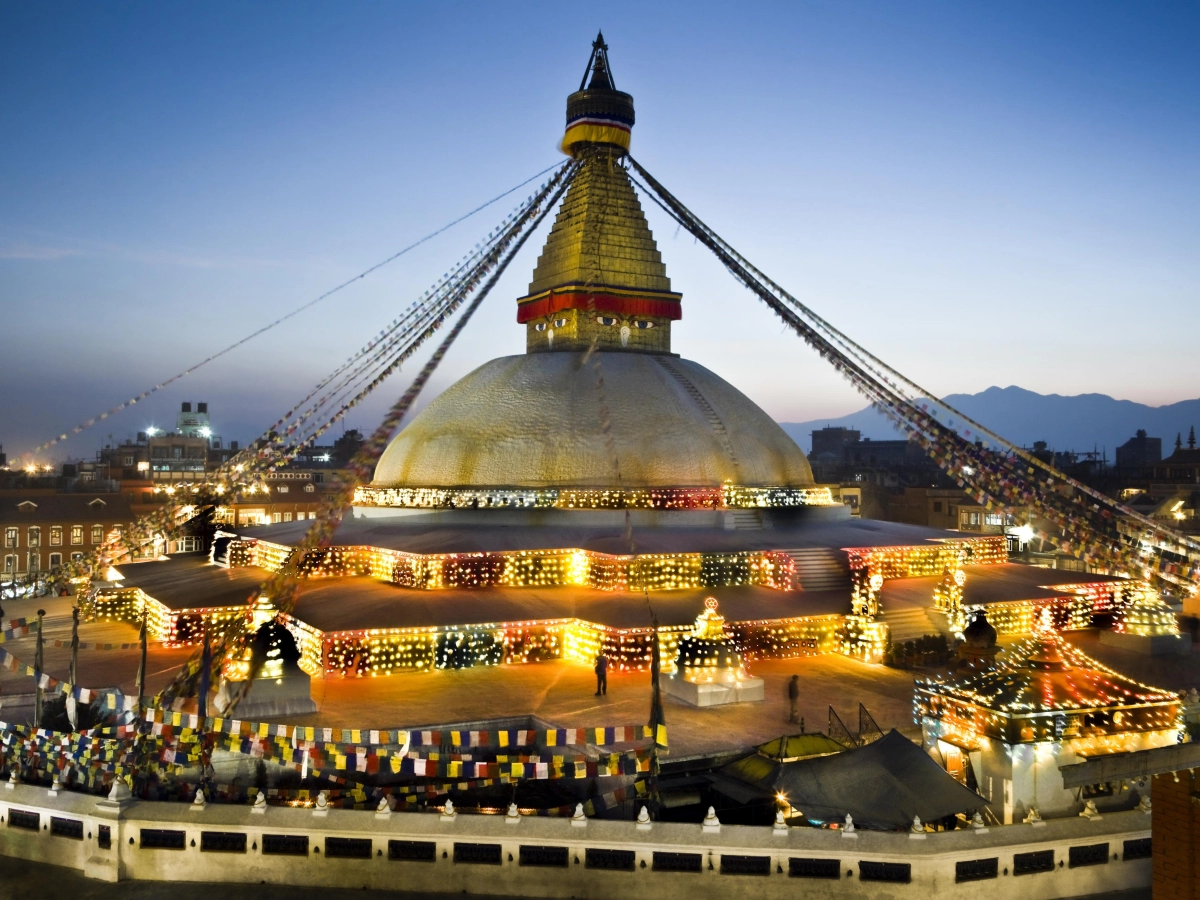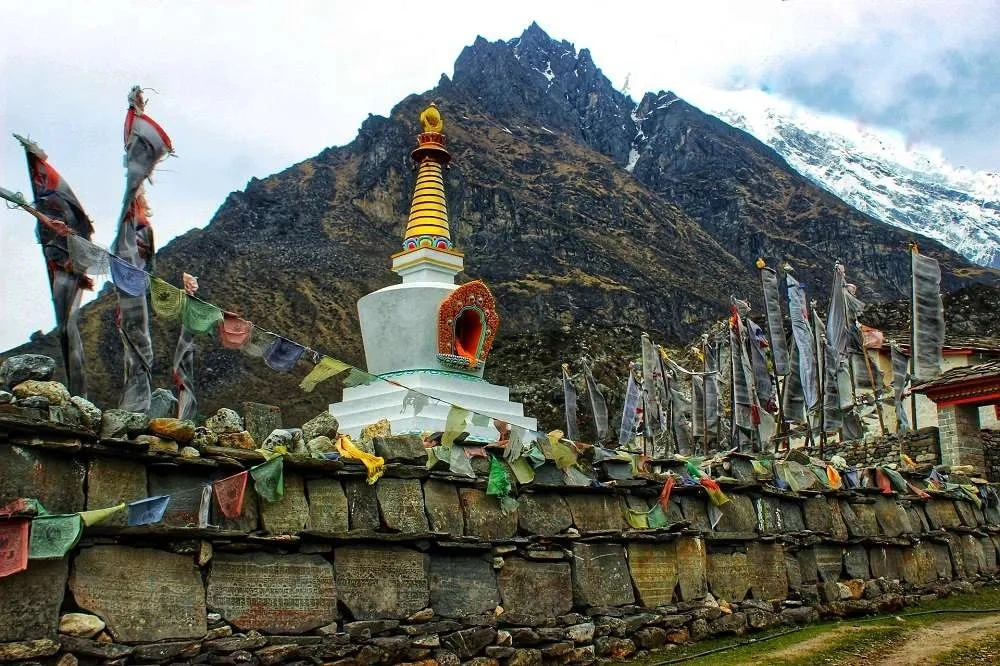Langtang Valley Trek

Explore the stunning Langtang Valley, one of the most admired trekking destinations in Nepal, through a well-crafted 10-day itinerary by Oyepedia Travel LLP Known as the “Valley of Glaciers,” Langtang offers a perfect blend of nature, culture, and adventure, showcasing the majestic Himalayan views, unique Tibetan culture, and breathtaking landscapes.

Trip Highlights
– Yak Cheese Factories: Visit home-based yak cheese factories and experience local life.
– Kyanjin Gompa Monastery: Explore the ancient Kyanjin Gompa, an important religious site.
– Sunrise at Kyanjin Ri: Witness a mesmerizing sunrise from Kyanjin Ri, perched at 4,600 meters.
– Tibetan-Inspired Lifestyle: Immerse yourself in the lifestyle heavily influenced by Tibetan culture.
– Spectacular Landscapes: Traverse through a landscape filled with glaciers, yak pastures, and majestic mountains.
– Stunning Mountain Views: Enjoy panoramic views of Langtang Lirung (7,245m), Langtang Ri (6,370m), Dorje Lakpa (6,990m), and more.
Trip Overview
The Langtang Valley trek is a moderate difficulty trek that covers around 80 kilometers over 10 days, with the highest point being Kyanjin Ri at 4,773 meters. Starting and ending in Kathmandu, this trek takes you through rhododendron forests, Tibetan Buddhist villages, and offers panoramic views of some of the highest peaks in Nepal. The trek is accessible to beginners with average fitness, making it an excellent choice for those looking to experience the Himalayas without an extremely challenging route.
Detailed Itinerary
Day 01: Arrival in Kathmandu

Upon your arrival at Tribhuvan International Airport, you will be warmly welcomed by our team and transferred to your hotel. In the evening, you will meet with your trekking guide to receive a detailed briefing on the trek. If your arrival is later in the day, the meeting will be scheduled for the following morning. You may also opt for an additional night to explore Kathmandu and prepare for the trek. For those interested in sightseeing, we offer visits to Kathmandu’s UNESCO World Heritage Sites, including the Kathmandu Durbar Square, Swayambhunath, and Boudhanath.
Accommodation: Kathmandu Eco Home
Meals: N/A
Transportation: Private transport
Day 02: Kathmandu to Syabrubesi
After breakfast, we embark on a scenic 6-8 hour drive to Syabrubesi, the starting point of the trek. The route takes us through picturesque hills and rural landscapes. Upon arrival, we check into a local lodge where we’ll spend the night in preparation for the trek ahead.
Accommodation: Local Lodge
Meals: Breakfast, Lunch, Dinner
Transportation: Private transport
Day 03: Syabrubesi to Lama Hotel
On day three, we begin our trek from Syabrubesi to Lama Hotel, a 6-8 hour trek covering 11 kilometers. The trail ascends through dense rhododendron and oak forests, providing an excellent introduction to the natural beauty of Langtang. We’ll pass small villages and teahouses before reaching Lama Hotel at 2,560 meters, where we’ll rest for the night.
Accommodation: Local Lodge
Meals: Breakfast, Lunch, Dinner
Day 04: Lama Hotel to Langtang Village

Continuing our journey, we trek for another 6-8 hours towards Langtang Village. This 12-kilometer trek takes us through alpine forests, crossing streams and rivers along the way. Langtang Village, located at 3,430 meters, is a beautiful Tibetan Buddhist village where you’ll experience the local culture and traditions. We’ll spend the night at a local lodge.
Accommodation: Local Lodge
Meals: Breakfast, Lunch, Dinner
Day 05: Langtang Village to Kyanjin Gompa
On day five, we trek to Kyanjin Gompa, a 4-6 hour journey covering 6 kilometers. As we ascend to 3,830 meters, the landscape transforms into a high-altitude environment with stunning mountain views. Kyanjin Gompa is an important religious site, and here we’ll stay in a local lodge to acclimatize and explore the area.
Accommodation: Local Lodge
Meals: Breakfast, Lunch, Dinner
Day 06: Sunrise at Kyanjin Ri
Early in the morning, we hike to Kyanjin Ri at 4,773 meters for a spectacular sunrise view over the Langtang mountain range. The 4-6 hour trek provides panoramic views of Langtang Lirung, Yala Peak, and other towering peaks. After soaking in the magnificent views, we return to Kyanjin Gompa for a well-deserved rest.
Accommodation: Local Lodge
Meals: Breakfast, Lunch, Dinner
Day 07: Kyanjin Gompa to Lama Hotel

We begin our return journey by retracing our steps back to Lama Hotel. This 6-8 hour trek takes us downhill through the forest and valleys, covering a distance of 18 kilometers. Along the way, you’ll enjoy the changing scenery and views of the Langtang range.
Accommodation: Local Lodge
Meals: Breakfast, Lunch, Dinner
Day 08: Lama Hotel to Syabrubesi
On the eighth day, we complete the final leg of our trek by walking back to Syabrubesi. The 6-8 hour trek will take us downhill, covering 11 kilometers. Once back in Syabrubesi, we’ll spend the night in a local lodge.
Accommodation: Local Lodge
Meals: Breakfast, Lunch, Dinner
Day 09: Drive to Kathmandu
We drive back to Kathmandu, a 6-8 hour journey covering 150 kilometers. Along the way, we’ll enjoy the scenic drive and reflect on the trek’s highlights. Once in Kathmandu, we’ll check into the hotel and relax after the trek.
Accommodation: Kathmandu Eco Home
Meals: Breakfast, Lunch, Dinner
Transportation: Private transport
Day 10: Departure
On your final day, we’ll provide transportation to the airport for your departure flight. If you have time, you can explore the vibrant streets of Kathmandu before you leave.
Meals: Breakfast
Transportation: Private transport
Best Time to Visit Langtang Valley
The best time for the Langtang Valley Trek is during the autumn (October, November, December) and spring (February, March, April, May) seasons. These months offer clear skies, perfect views of the mountains, and comfortable trekking conditions. Avoid trekking during the monsoon (July and August), as rainfall can obstruct visibility and make the trail slippery.